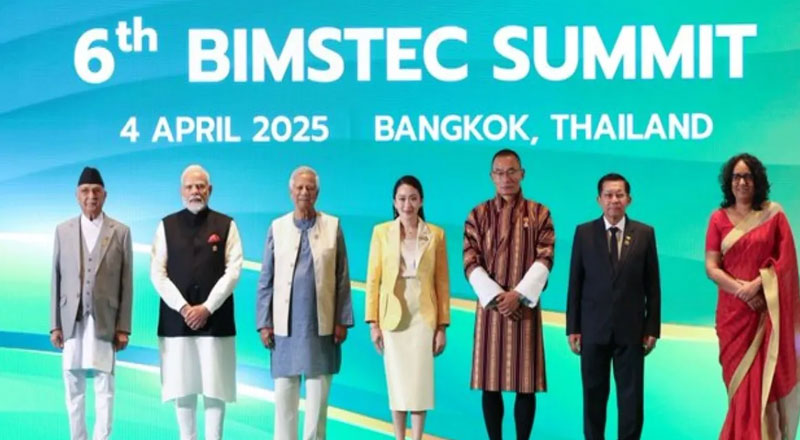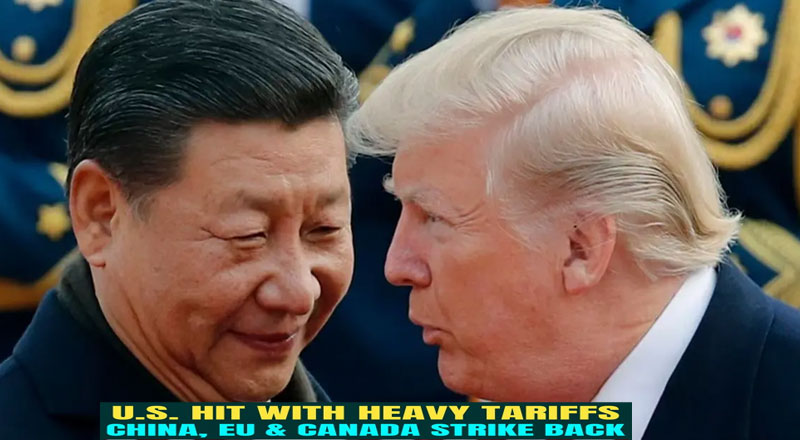A Legacy of Friendship and Strains in Ties
India and Bangladesh share a deep-rooted relationship shaped by history, geography, and mutual cooperation. Since Bangladesh’s independence in 1971, India has been a key ally, offering economic support, infrastructure development, and strategic collaboration. However, the relationship has seen strains in recent times, particularly after the political turmoil in Bangladesh that led to the exile of former Prime Minister Sheikh Hasina. Hasina, who sought refuge in India amidst corruption allegations and violent protests in her country, has become a contentious figure in the evolving political landscape. Her presence in India has sparked diplomatic tensions, with Dhaka repeatedly urging New Delhi to extradite her for prosecution.
PM Modi and Yunus Meet in Thailand
Against this backdrop, Indian Prime Minister Narendra Modi met Bangladesh’s Interim Chief Adviser, Muhammad Yunus, on the sidelines of the BIMSTEC summit in Bangkok, Thailand. This marked the first formal interaction between the two leaders following Hasina’s ousting, making it a highly anticipated diplomatic engagement.
Yunus’s office confirmed the meeting through an official post on social media platform X (formerly Twitter), stating, “Chief Adviser Professor Muhammad Yunus and Indian Prime Minister @narendramodi join a bilateral meeting on the sidelines of the sixth BIMSTEC Summit in Bangkok, Thailand.” The engagement was preceded by a notable moment during the BIMSTEC leaders’ dinner, where Modi and Yunus were seated next to each other, signaling an attempt to ease diplomatic tensions.
India’s Shelter to Hasina: A New Flashpoint
Sheikh Hasina’s decision to take refuge in India has been a major point of contention. The Bangladeshi government, under Yunus, has repeatedly demanded her extradition to face corruption charges, while India has maintained its stance on providing her safety. This decision has led to growing friction, as Dhaka views it as interference in its internal affairs.
Despite these tensions, India has continued to extend its support to Bangladesh in various sectors, including trade, defense, and infrastructure. However, the diplomatic standoff over Hasina’s status remains a critical issue that could redefine the trajectory of India-Bangladesh relations in the coming months.
Turbulence at BIMSTEC: The Northeast Controversy
The meeting also came amidst controversy over Yunus’s statement describing India’s Northeast as “landlocked” and asserting that Dhaka is the “only guardian of the ocean for this region.” The remarks sparked backlash in India, with External Affairs Minister S. Jaishankar responding firmly at the 20th BIMSTEC Ministerial Meeting in Bangkok. He underscored India’s vision of enhanced connectivity, stating, “Our Northeast region is emerging as a connectivity hub, with a myriad network of roads, railways, waterways, grids, and pipelines. The completion of the Trilateral Highway will connect India’s Northeast to the Pacific Ocean, a veritable game-changer.”
Jaishankar’s remarks signaled India’s intent to maintain its strategic leverage and economic influence in the region, dismissing any notion of dependence on Bangladesh for access to the ocean. His assertion that regional cooperation should be “an integrated outlook, not subject to cherry-picking” highlighted India’s stance on BIMSTEC’s collective growth and development.
What This Means for Future Diplomacy
The Modi-Yunus meeting, though brief, carries significant diplomatic weight. It underscores India’s cautious approach in balancing its historical ties with Bangladesh while navigating the complexities of the current political climate. The future of India-Bangladesh relations will likely hinge on how both nations address sensitive issues such as Hasina’s exile, regional connectivity, and economic cooperation.
If handled with diplomatic finesse, this period of strained ties could transform into an opportunity for renewed engagement and deeper strategic collaboration. India’s response to Bangladesh’s evolving leadership and its willingness to address Dhaka’s concerns while protecting its own interests will determine the future trajectory of this crucial bilateral relationship.
(With agency inputs)





